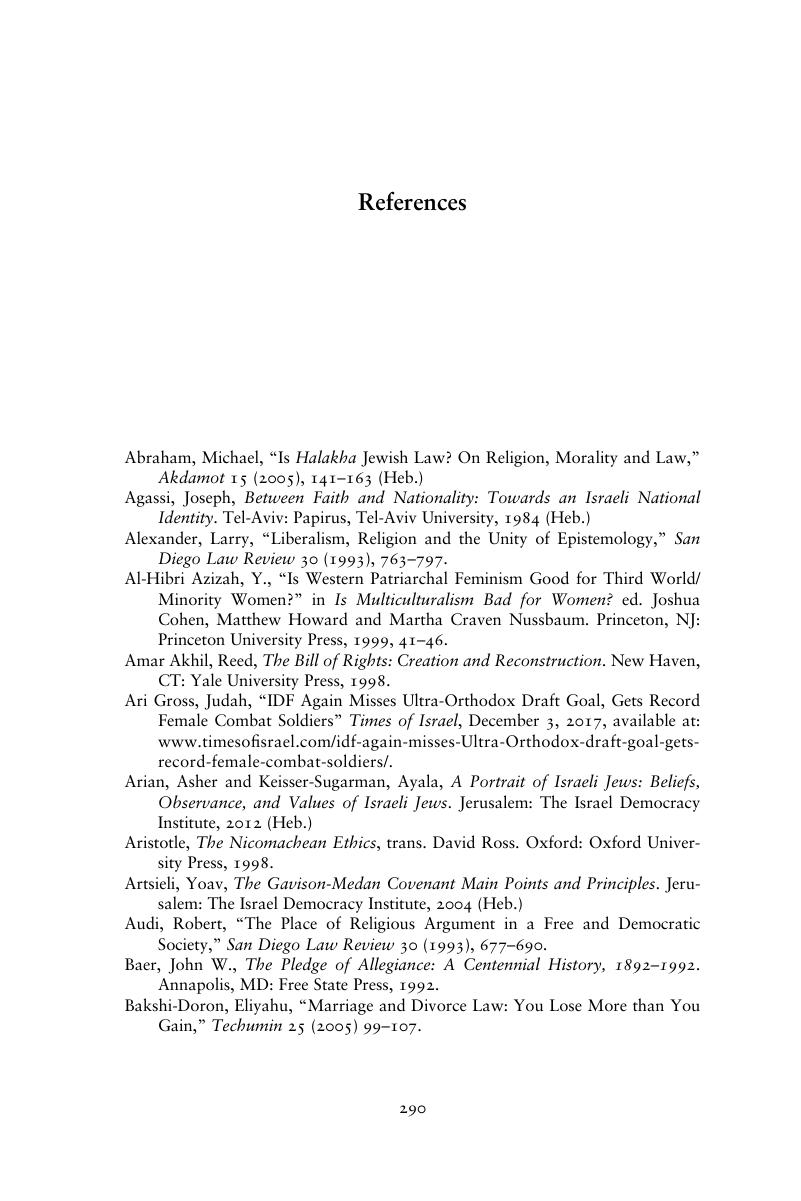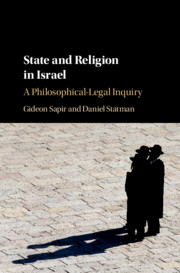References
Published online by Cambridge University Press: 21 December 2018
Summary

- Type
- Chapter
- Information
- State and Religion in IsraelA Philosophical-Legal Inquiry, pp. 290 - 302Publisher: Cambridge University PressPrint publication year: 2019



